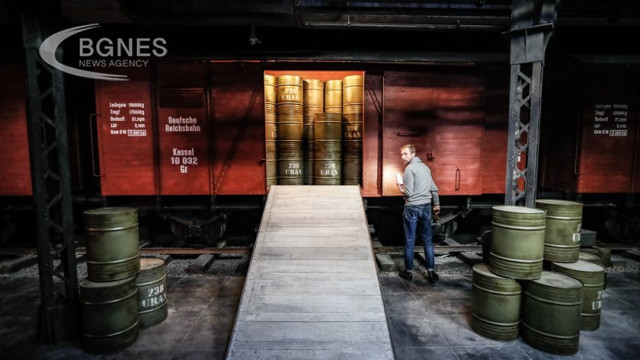Members of the Group of Seven (G-7) have jointly pledged to reduce dependence on Russian nuclear fuel supplies to create a "diversified fuel supply chain free from Russian influence," a joint statement quoted by the Kiev Independent said.
Despite Western efforts to cut off Russian energy supplies, Moscow remains the largest supplier of enriched uranium on the world market.
Rosatom, Russia's state nuclear corporation, accounts for 30 percent of enriched uranium supplies purchased from the EU and 23 percent of those purchased from the U.S. through 2022, the Royal United Services Institute (RUSI) said in a March report.
"We note the continued efforts of countries operating Russian-designed reactors to make progress in securing alternative nuclear fuel contracts and reducing dependencies related to spare parts, components and services," said the statement released after the two-day ministerial summit in Turin, Italy.
G7 members also agreed to assist countries seeking to diversify their fuel supplies.
The statement was released on the same day that the US Senate passed legislation to ban Russian imports of enriched uranium.
The signatories also condemned Russia's continued occupation and militarization of the Zaporizhzhia nuclear power plant in Ukraine, creating "serious risks to nuclear safety and security with implications for the broader international community".
The Zaporizhzhia nuclear power plant, the largest nuclear power plant in Europe, has been under Russian occupation since March 2022.
Throughout the occupation, the plant has been repeatedly disconnected from the Ukrainian power grid due to Russian attacks on the country's energy infrastructure.
Russian troops have also used the plant as a platform to launch strikes on Nikopol, located just across the Kakhovka dam, and other Ukrainian settlements nearby. / BGNES







